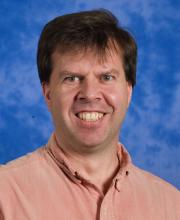
Department of Horticulture
University of Kentucky
401A Plant Science Building
Lexington KY 40546-0312
Seeds comprise 70% of the human diet world-wide and make up the bulk of the feed used to produce livestock that constitute a considerable proportion of the other 30% of our diet. On a practical level seed longevity and germination are the foundations of modern agriculture. On a fundamental level, seed germination is the stage of the life cycle when the plant undergoes a rapid transition from being most impervious (the seed), to being most susceptible (the seedling) to environmental stress. The orchestration of the switch from seed development to seed maturity and then to the germinative mode each involves a radical alteration of transcriptional and post-transcriptional activity. These alterations result in profound physiological changes that permit most seeds (so called 'orthodox' seeds) to survive dehydration to 5% moisture content, extend longevity in this dry state for considerable periods and finally undergo a fascinating alteration upon imbibition commencing with an intense metabolic activity and culminating in the completion of seed germination and the establishment of the next generation. I examine, at the physiological and molecular level, how the seed thus fulfills its function as a propagule.
The two areas of seed biology I chose to study are seed longevity (how the seed survives dehydration) and seed germination (what processes are required to allow some portion of the embryo to protrude from the seed). Both processes can use the LATE EMBRYOGENESIS ABUNDANT (LEA) proteins to withstand stresses and we are systematically examining LEA proteins for those protein partners with which they preferentially interact. See http://www.uky.edu/hort/LEAPin_overview and http://www.seedsleuths.com/ for summaries of our results so far.

